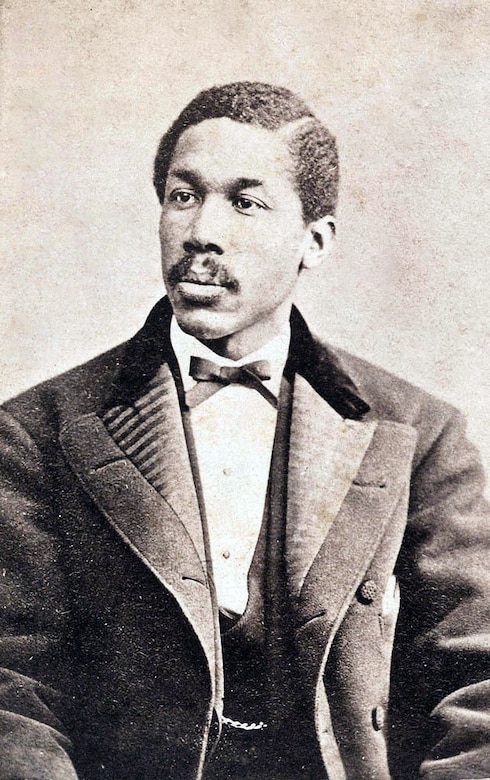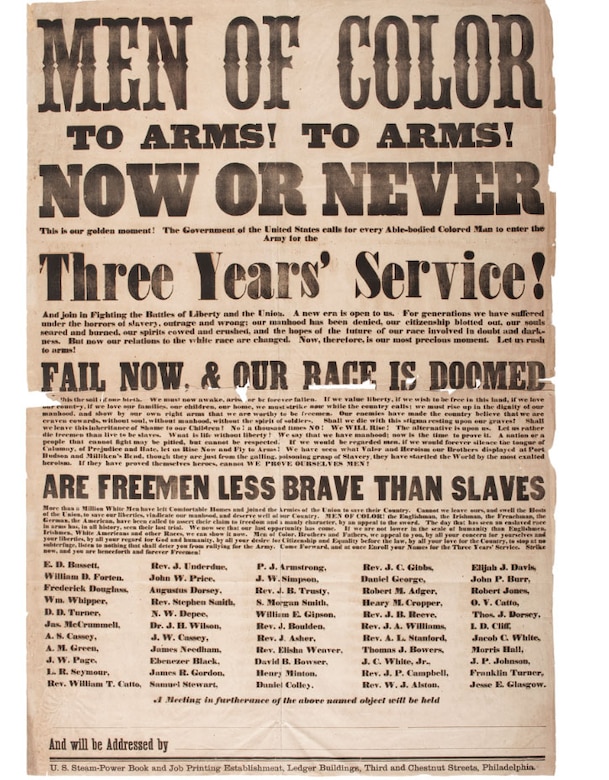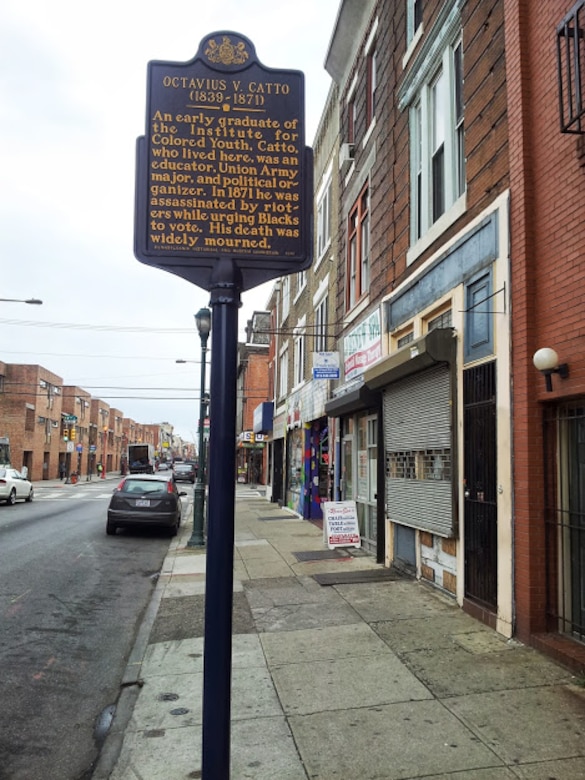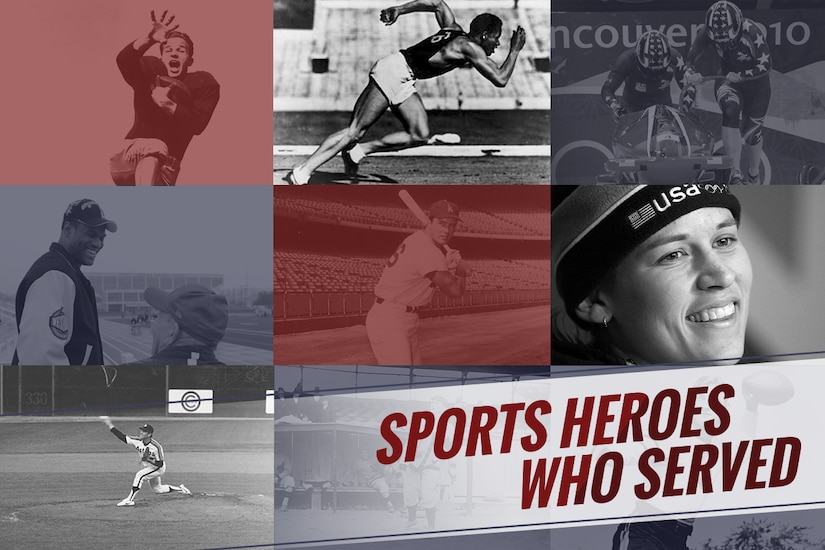Feb. 2, 2021 | , DOD News
Octavius Valentine Catto was born Feb. 22, 1839, in Charleston, South Carolina. His parents were African-Americans and were free.
The family later moved to Philadelphia, Pennsylvania, where Catto played cricket in school and then later took up baseball.

He graduated from Philadelphia's Institute for Colored Youth, or ICY, in 1858 and then did a year of postgraduate study. Beginning in 1859, he taught English and Math at ICY.
In 1861, when the Civil War started, Catto joined with abolitionist and statesman Frederick Douglass to recruit black men to fight for the Union. Together, they helped to raise 11 regiments of U.S. Colored Troops in the Philadelphia area. At the time, Catto was commissioned an Army major.
After the Civil War, Catto helped establish Negro league baseball in Philadelphia. He was the captain and the star player of the Pythian team there. In 1867, the team applied to join the Pennsylvania chapter of the National Amateur Association of Base Ball Players.
The application was denied, which established a segregation precedent in U.S. baseball that continued for many decades, according to Ryan Swanson, author of the book "When Baseball Went White."

Nevertheless, the Pythian team, which was not an NAA member, played the all-White Olympics team on Sept. 3, 1869, losing to the Olympics 44-23. The event was significant because it was the first baseball game ever played between a "white and colored club," according to a New York Times newspaper article.
Catto also became the principal of ICY and worked to desegregate Philadelphia's streetcars.
Joining with Douglass, the two gave speeches calling for ratification of the 15th Amendment to the Constitution, which guaranteed that no citizen could be kept from voting "on account of race, color or previous condition of servitude."
The amendment, which was the third and last of the Reconstruction Amendments, was ratified Feb. 3, 1870.
In 1871, Catto urged Blacks to vote, and it was the first time in Philadelphia's history that they voted, despite violence against them at voting sites.


During the voting site violence, Catto was shot and killed by a man who didn't want Black Americans to vote.
Frank Kelly was identified as the killer by multiple witnesses. He was captured and put on trial; an all-white jury exonerated him.
In September 2017, a 12-foot bronze statue of Catto was unveiled at Philadelphia's City Hall.









No comments:
Post a Comment